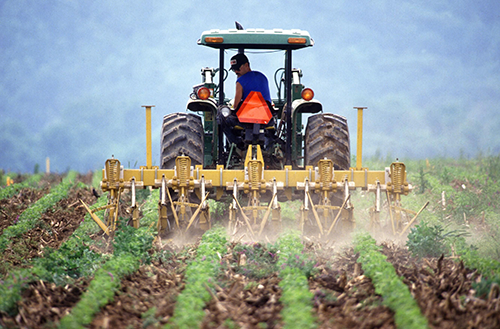Jan 12 2015 Sustainable Food Laboratory: Incubating for sustainable food production
 Cross-sector collaboration can be applied to a myriad of issues at varying scale. Environmental degradation and food supply shortages represent two critical issues that prevent millions of people worldwide from meeting their most basic needs and are ripe for cross-sector collaboration. One remarkable initiative that has emerged as a true leader in applying collaborative approaches to these issues is the Sustainable Food Lab — a global consortium of business, non-profit, and government organizations that are working together to design and implement market-based solutions to ensure that a healthy and sustainable food system is developed to feed a growing world.
Cross-sector collaboration can be applied to a myriad of issues at varying scale. Environmental degradation and food supply shortages represent two critical issues that prevent millions of people worldwide from meeting their most basic needs and are ripe for cross-sector collaboration. One remarkable initiative that has emerged as a true leader in applying collaborative approaches to these issues is the Sustainable Food Lab — a global consortium of business, non-profit, and government organizations that are working together to design and implement market-based solutions to ensure that a healthy and sustainable food system is developed to feed a growing world.
The Sustainable Food Lab uses collaborative learning to incubate innovation at every stage of the supply chain from producing to distributing and selling food. One of the most important projects that has emerged from this collaborative is the Cool Farm Tool located in eighteen countries across four continents. It is a farmer-focused approach to reduce the greenhouse gas footprint of specific farming systems and to work with farmers to reduce emissions and improve their systems. Originally developed in 2009 by the University of Aberdeen, Unilever, and the Sustainable Food Lab, the tool operates as a free, online calculator that assists farmers in measuring the carbon footprint of their crop and livestock products. The tool, described as a “user-focused decision-support tool,” is a standardized module that quantifies impact in order to transform systems to be more sustainable. It assists farmers in making more informed on-farm decisions that reduce their environmental impact and increase productivity levels.
Implementing a tool that The Intersector Project Toolkit refers to as Share a Vision of Success, the Sustainable Food Lab and its partners, some of the world’s largest food producers and local non-profits, came together to work through their differences and arrived at an understanding of the mutual benefits that this initiative could have on global food production. The Sustainable Food Lab now operates as a backbone organizations for international NGOs and businesses that focus on improving food productions.
To learn more about the Sustainable Food Lab and its initiatives, visit http://sustainablefood.org/projects. To learn about the views of Hal Hamilton, the lab’s co-director, on the need for systems leaders in the food industry, see the Leading Systems article published in the Stanford Social Innovation Review, http://www.ssireview.org/articles/entry/leading_systems#systemleaders.
